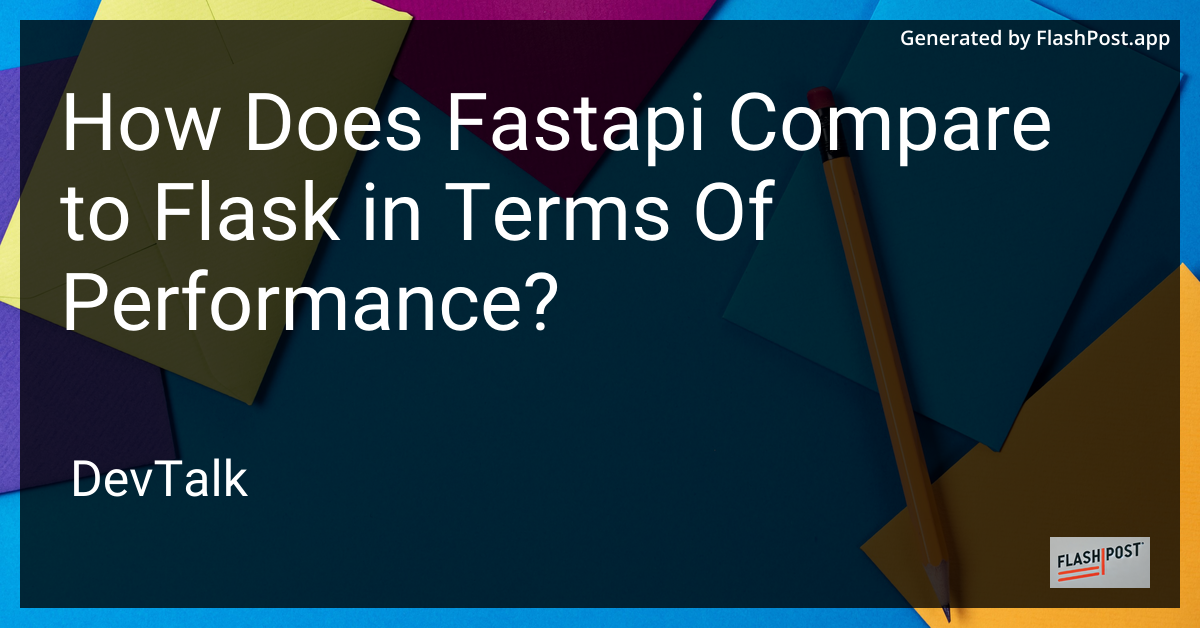How Does Fastapi Compare to Flask in Terms Of Performance?

How Does FastAPI Compare to Flask in Terms of Performance?
FastAPI and Flask are two popular web frameworks for building APIs in Python.
While both offer robust functionality and ease of use, they differ significantly in terms of performance. This article will explore how FastAPI compares to Flask in terms of speed, efficiency, and overall performance.
Understanding the Basics
Before delving into performance, it's crucial to understand the core of each framework. Flask is a microframework that provides essential tools to get a web app up and running. On the other hand, FastAPI is a modern web framework for building APIs with Python 3.6+ based on standard Python type hints.
Speed and Performance
-
Asynchronous Support: FastAPI offers native support for asynchronous programming with Python's
async/awaitsyntax. This allows for non-blocking IO operations and can handle multiple requests in parallel, significantly boosting performance. In contrast, Flask requires workarounds or third-party extensions to achieve similar asynchronous capabilities. -
Uvicorn and ASGI: FastAPI runs on Uvicorn, a lightning-fast ASGI server, providing better performance under high loads compared to Flask, which traditionally depends on WSGI. This design choice makes FastAPI a superior choice for handling a large number of simultaneous connections.
-
Built-in Data Validation: FastAPI automatically validates request data, whereas Flask typically requires additional libraries like Marshmallow or Cerberus, potentially impacting speed negatively.
Benchmarks
Several benchmark tests have shown that FastAPI handles requests faster than Flask. In many cases, FastAPI outperforms Flask by 2-3 times when dealing with high loads. These performance gains are largely due to FastAPI's asynchronous nature and efficient serialization and deserialization.
Community and Ecosystem
While Flask boasts a larger ecosystem and more mature community, FastAPI is quickly gaining popularity due to its forward-thinking features and performance advantages. It is an excellent choice for projects requiring high throughput and efficiency.
Conclusion
When choosing between FastAPI and Flask, consider the needs of your project. If performance, scalability, and modern async capabilities are your priorities, FastAPI is likely the superior choice. For simpler applications or when adhering to a well-established ecosystem is more critical, Flask remains a strong contender.
Related Links
- Learn about passing a URL in FastAPI route.
- Explore FastAPI MongoDB bulk insert.
- Solutions for fixing 'routes' error in FastAPI.
- Guide on returning a list field in FastAPI.
- Learn about routing with middleware in FastAPI.
By leveraging FastAPI's advanced performance features, developers can create fast and scalable APIs that can handle the demands of modern web applications.